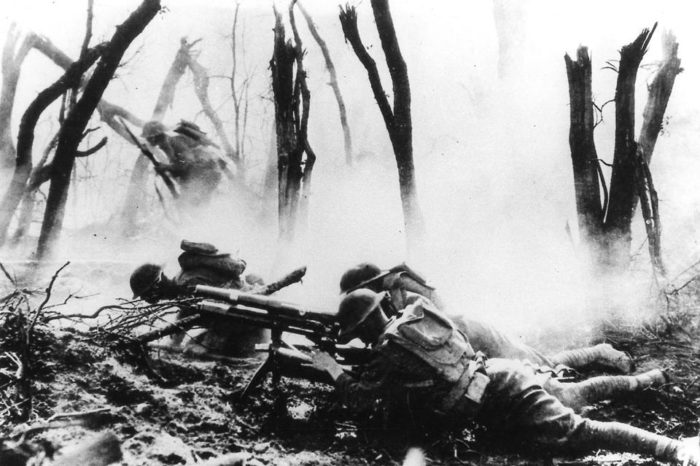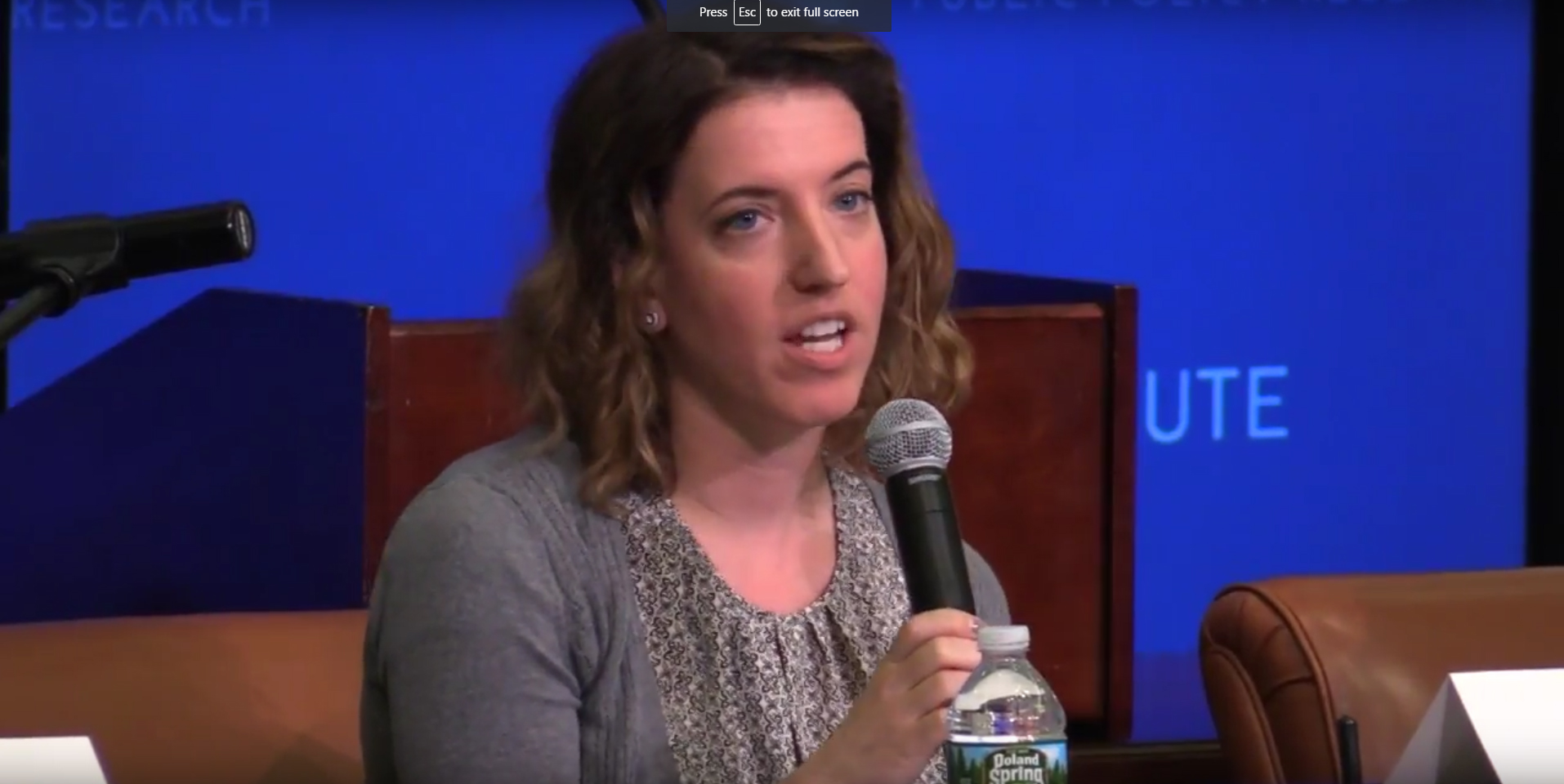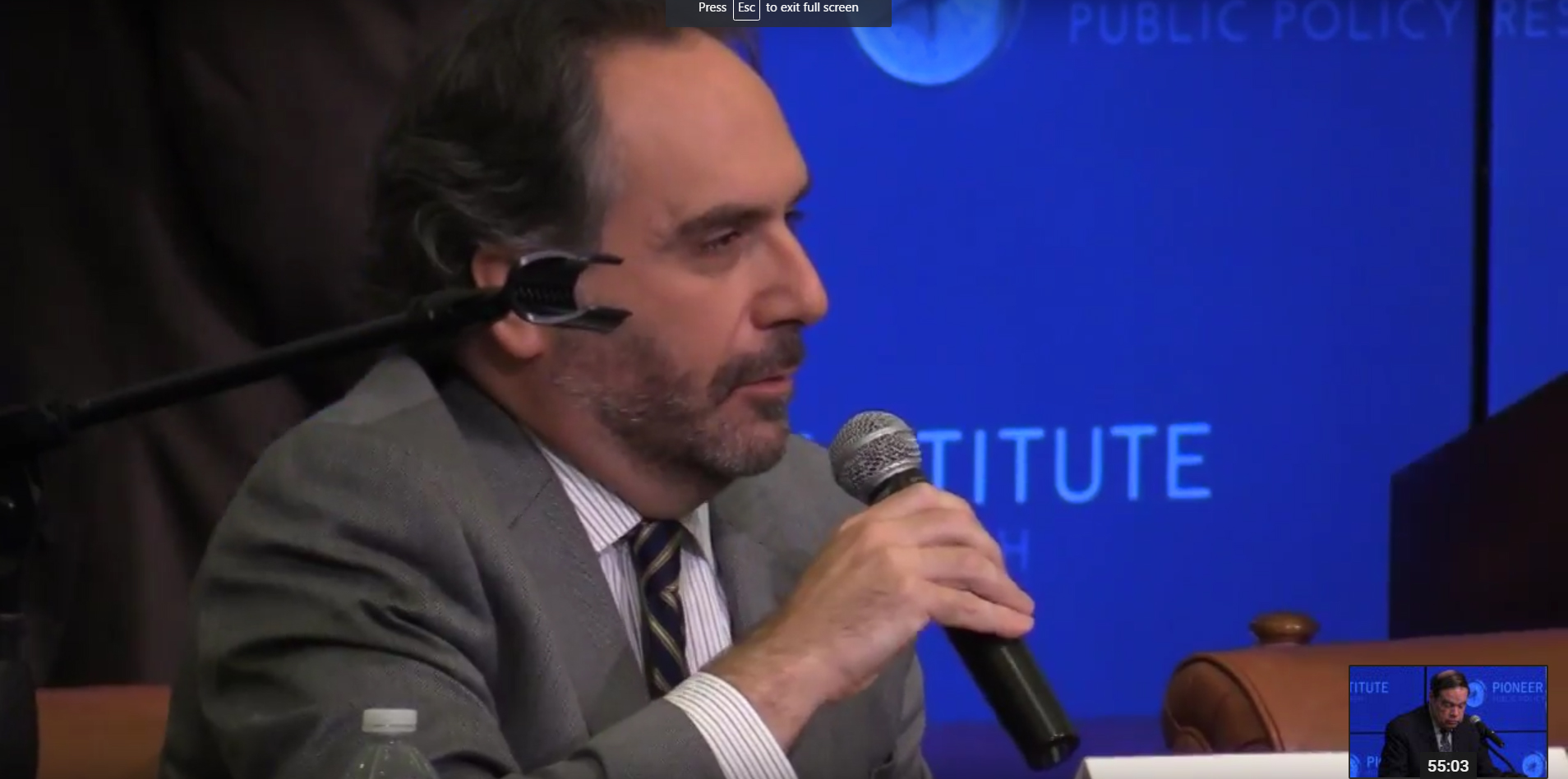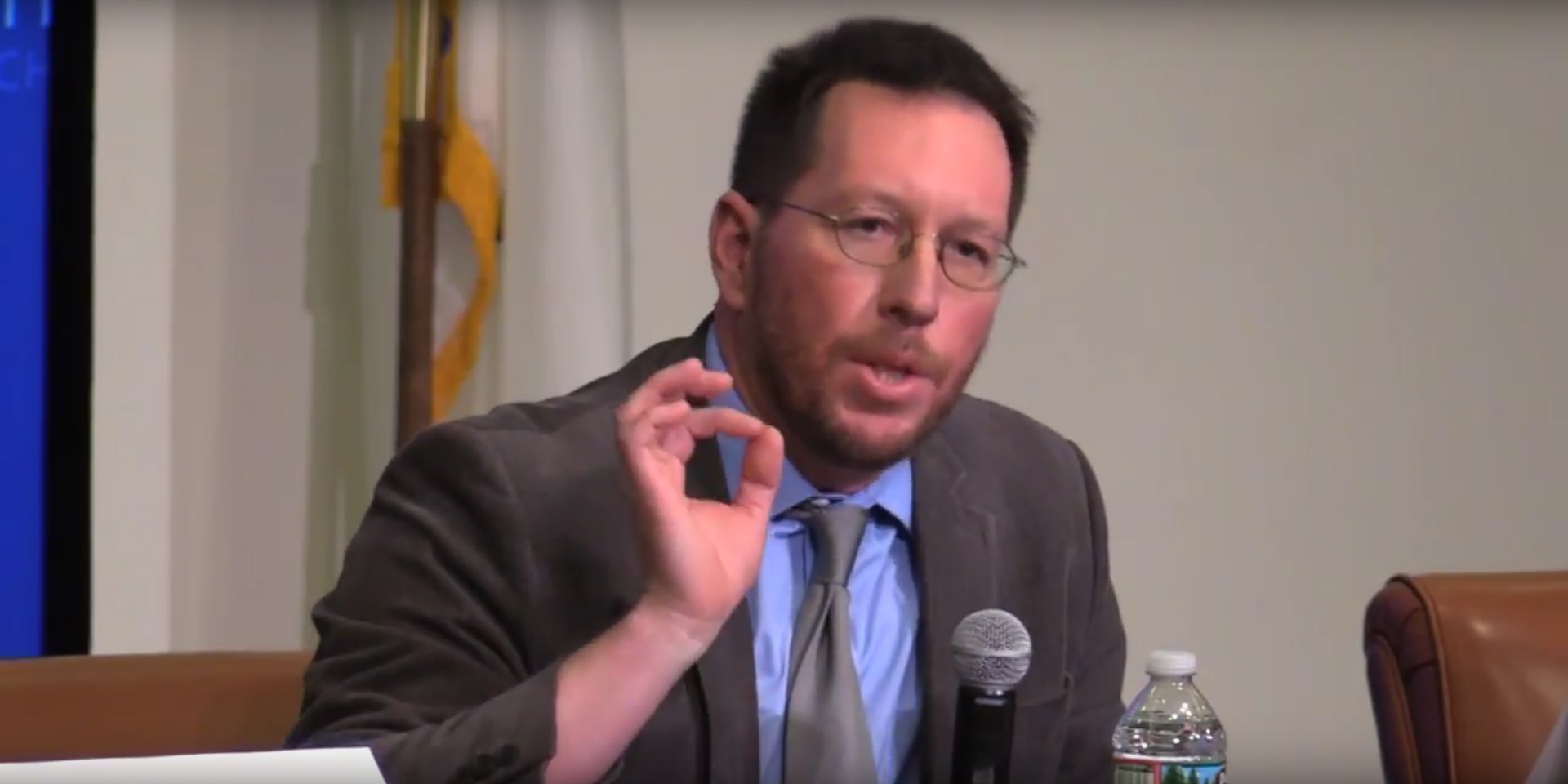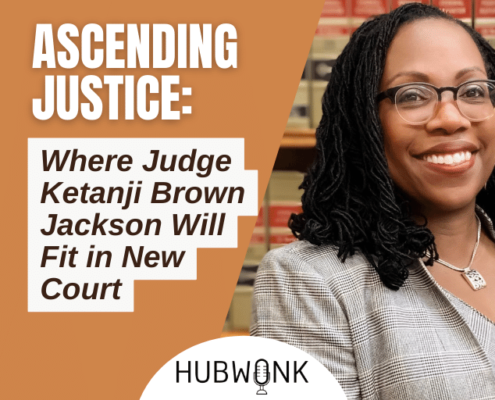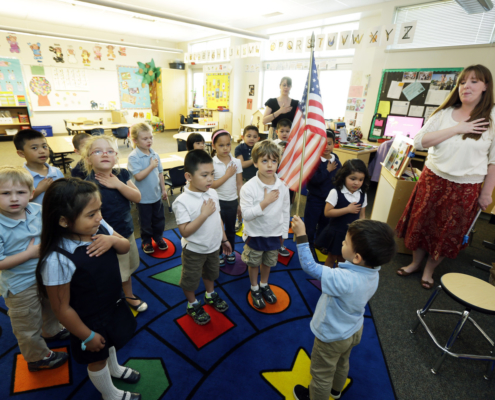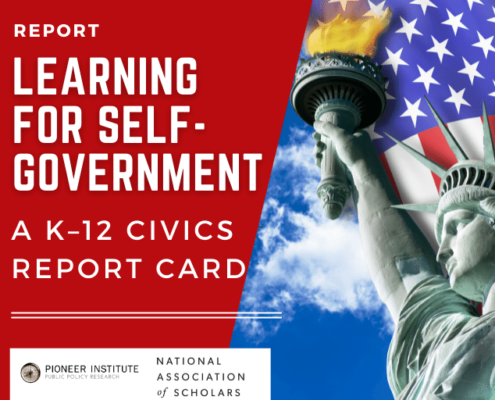Commemorating The 100th Anniversary Of U.S. Entry Into World War I
On Tuesday, April 4th, at the Edward M. Kennedy Institute for the U.S. Senate in Boston, Pioneer Institute held a forum (see press release) with award-winning historians and history teachers marking the 100th anniversary of U.S. entry into the First World War. The event was co-sponsored by the United States World War I Centennial Commission, the Gilder Lehrman Institute of American History, the Massachusetts Historical Society, the International Museum of World War II, The Concord Review, the National Association of Scholars, and the Program on Education Policy & Governance at the Harvard University John F. Kennedy School of Government. Pioneer Institute was proud to hold this forum in conjunction with the Northeast Regional Conference on the Social Studies. Pioneer believes we have a duty to ensure students know about our shared past.
Watch video clips below of the event keynotes, historians, and teachers.
Click on the images to watch the videos.
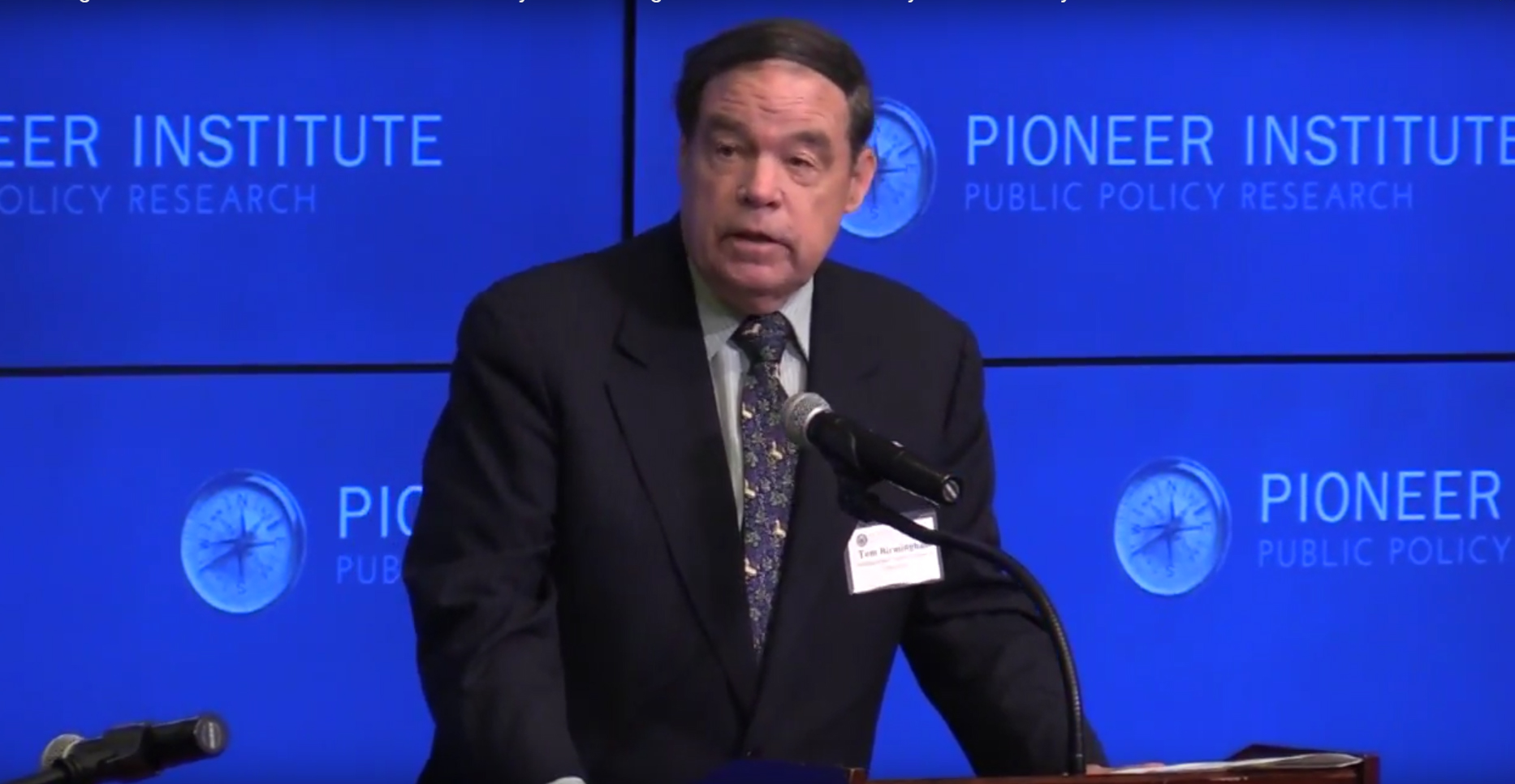
Introductory remarks by Tom Birmingham, Pioneer Institute’s Distinguished Senior Fellow in Education & former Massachusetts Senate President
Co-Keynote: David Kennedy, Donald J. McLachlan Professor of History Emeritus, Stanford University, Pulitzer Prize-winning author, Freedom from Fear: The American People in Depression and War, 1929-1945; Over Here: The First World War and American Society
Co-Keynote: John Milton Cooper, Jr., E. Gordon Fox Professor Emeritus, University of Wisconsin-Madison, and author of multiple books about Woodrow Wilson, including Woodrow Wilson: A Biography, a finalist for the Pulitzer Prize for Biography
Michael Neiberg, inaugural Chair of War Studies, United States War College; author, Dance of the Furies: Europe and the Outbreak of World War I
Kelley Brown, history and social studies teacher, Easthampton High School, 2010 Massachusetts History Teacher of the Year
Clara Webb, European and world history teacher, Boston Latin School, & A.P. European History Table Leader, College Board
Edward Lengel, White House Historical Association Chief Historian; author, To Conquer Hell: The Meuse-Argonne, 1918
Andrew Carroll, Founder & Director, Center for American War Letters, Chapman University; author, My Fellow Soldiers: General John Pershing and the Americans Who Helped Win the Great War
Coverage:
| The Boston Globe: For Social Studies Teachers, WWI Presents a Growing Challenge By Laura Crimaldi GLOBE STAFF APRIL 05, 2017Jamie Gass, director of the Center for School Reformat the Pioneer Institute, said the organization has sponsored history conferences before, but none dealt with World War I. The event is part of the group’s efforts to persuade the state to require students pass a US history test in order to graduate from high school, he said.”Americans are not knowledgeable in our history,” said Thomas F. Birmingham, former president of the state Senate and a distinguished senior fellow in education at the Pioneer Institute. “I think knowledge about history and civics contributes to people’s ability to perform the prerogatives of citizenship.” Read more… |
Related:
| On Veterans Day, Learning from “Black Jack” Pershing By Jamie GassNovember 8, 2015This Veterans Day, we should honor General Pershing’s heroism and sense of duty to country by upholding America’s most noble aspirations of martial valor. We can accomplish this by restoring the U.S. history MCAS test as a graduation requirement, and ensuring that our children are taught the historical lessons necessary to preserve and protect our democracy’s ideals. Read more… |
Related research:

